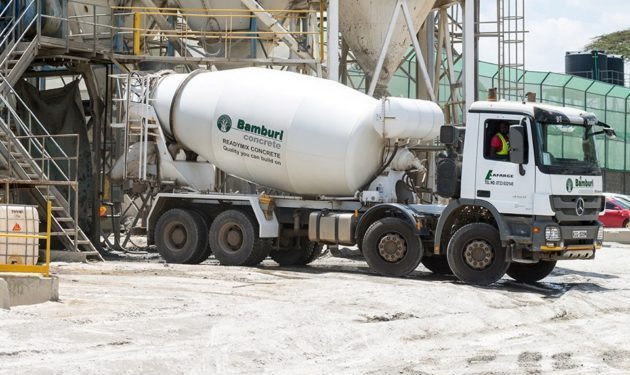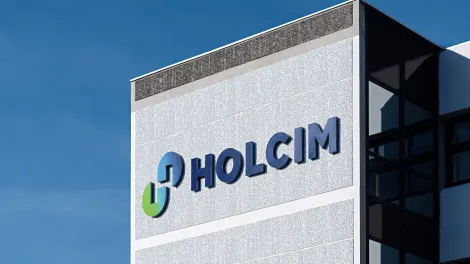
Inside Amsons Group’s KShs 23.59 billion Buyout Offer for Bamburi Cement
- Published By Jane Njeri For The Statesman Digital
- 1 year ago
Amsons Industries, a subsidiary of Tanzanian conglomerate Amsons Group, will consider delisting Bamburi Cement from the NSE once it gets more 75% or more acceptance to its KShs. 23.59bn buyout offer for the cement manufacturer.
- The offer values Bamburi Cement at Kshs. 65 a share, a 44% premium from its closing price on June 9th, 2024.
- The company has already received irrevocable commitment from Bamburi’s majority shareholder, Holcim, which owns a combined 58.6% through subsidiaries Fincem Holding Ltd and Kencem Holding Ltd.
- Amsons has agreed to a break fee of $5.3 million plus any interest if the offer is not complete in the next 17 months.
As expected, news of the buyout offer has excited the equities markets on Bamburi Cement (ticker: BAMB), which closed Thursday’s trading at KShs. 57.75, an impressive 28.3% gain from the previous day’s closing price. It is likely to continue moving up towards Amson’s share offer.
However, investors who bought the stock at highs above KShs. 195 in mid-2017 are on edge of being cashed out at a loss. According to a detailed breakdown of Amson’s buyout offer, all current shareholders will be paid the anticipated special dividend from Bamburi Cement’s divestment from Uganda’s Hima Cement.
The Asset

Bamburi Cement Plc posted a net loss of KSh 399 million in 2023 compared to a net profit of KSh 181 million in 2022, mainly as a result of losses from discontinued operations in Hima Cement, which amounted to KShs. 1.06bn in 2023 compared to just KShs. 77mn the year before.
- Earnings per Share, which measures a firm’s profitability, also slid to negative KSh 0.21 from KSh 0.56 in 2022 while total comprehensive income declined to KSh 3.571 billion in 2023 from KSh 4.323 billion in 2022.
- The cement maker reported cash generation from operations, which increased to KSh 2.896bn as the result of an improvement in operating profit and efficient working capital management.
- The cement maker’s shareholders will be paid ordinary dividends of KShs. 5.47 per ordinary share on or before 25th July, which will see the company spend about KShs. 1.985bn.
Founded in 1951 by Dr. Felix Mandl, an Austrian working for Cementia Holding AG Zurich, Bamburi Cement was originally named British Standard Portland Cement Co. Ltd., and later Bamburi Portland Cement Ltd. Construction begun in 1952, with the first production and dispatch happening two years later. It produced 140, 000 tons of cement in that first year, and soon begun exporting to Tanzania and Mauritius, and eventually, the Arabian Gulf.
The company was listed on the Nairobi Securities Exchange (NSE) Construction and Allied category in 1970. It was partially acquired by LaFarge Group in 1989, after the Swiss multinational acquired Cementia Holding, before LaFarge became majority shareholder by also acquiring Blue Circle Industries in 2001. Bamburi itself acquired Hima Cement in Uganda in 1999, and a 20% stake in Athi River Mining in 2000.
It also owns a minority shareholding (12.50%) in East African Portland Cement (EAPC), although its ownership has always been seen from the perspective of LaFarge/Holcim’s total shareholding through various subsidiaries, which is 41.7%. The ownership was the trigger for multiple boardroom wars in the early 2010s over who controls the company pitting LaFarge and its subsidiaries against the government which owns 25.30%, and the NSSF which owns 27%. The government plans on divesting from EAPC as part of ongoing plans to divest from 6 listed companies.
The Seller
Swiss-based global building materials company Holcim has been restructuring its global business since it acquired LaFarge in 2015. In 2021, it divested from its Zambia unit by selling its majority shareholding to Chinese cement group Huazin for an enterprise value of $150mn.
In just three years (2019-2021), it had made over $3.1bn in divestments from the Indian Ocean cluster. It has also divested from Brazil, India, Russia, and other countries as part of its strategy to keep its books cash rich to facilitate acquisitions in other markets and sectors.
In total, the company has made 97 acquisitions, and sold more than 20 of its subsidiaries, since 2018. It is also in the process of restructuring its North American business by separating the capital structure so it can be listed in the United States.
The Buyer
Amsons Group is a Tanzanian family-owned business conglomerate founded in 2006 and with over $1bn in annual turnover.
- Its main business is in bulk oil and petroleum importation, but it has interests in cement manufacturing, wheat flour milling, LPG and transportation.
- Last November, Holcim agreed to sell its 65% in Mbeya Cement Company Ltd in Tanzania to Amsons Group.
- It is present in Burundi, Tanzania, Congo, Mozambique, and Zambia.
In Tanzania, Amsons Group manufactures cement under the brands “Camel Cement” and “Tembo Cement” and has a 6,000 MT/day manufacturing capacity.On its website, the company says it has created 1700 jobs directly and 2, 000 indirectly across the markets it is present in.
In addition to shareholder approvals, the proposed acquisition will need the approval of regulatory authorities, including The Capital Markets Authority (CMA), The Competition Authority of Kenya (CAK), as well as the NSE, if Amsons decide to delist it.
Share on
SHARE YOUR COMMENT
MORE STORIES FOR YOU
Trending Stories
DJ Mo’s former illicit lo...
- Published By Jane
- January 15, 2024
Mapenzi! Zari and Tanasha...
- Published By Jane
- October 24, 2023
Zuchu Speaks on Diamond P...
- Published By Jane
- October 12, 2023
Hio Ni Upumbavu Wasituche...
- Published By Jane
- November 8, 2023
RECOMMENDED FOR YOU
How People are Using AI t...
- Published By The
- October 29, 2025
How Raila Odinga’s Death...
- Published By The
- October 29, 2025
What is Ayurveda? Raila O...
- Published By The
- October 29, 2025
Why Parents Should Spend...
- Published By The
- October 29, 2025
Latest Stories
Early Cancer Signs To Pay...
- Published By Jedida
- November 3, 2025
4 Healthy Drinks That Can...
- Published By Jedida
- November 3, 2025
Kenya Holds The First Sof...
- Published By Jedida
- November 3, 2025
How A Gruesome Murder Hel...
- Published By Jedida
- November 3, 2025





